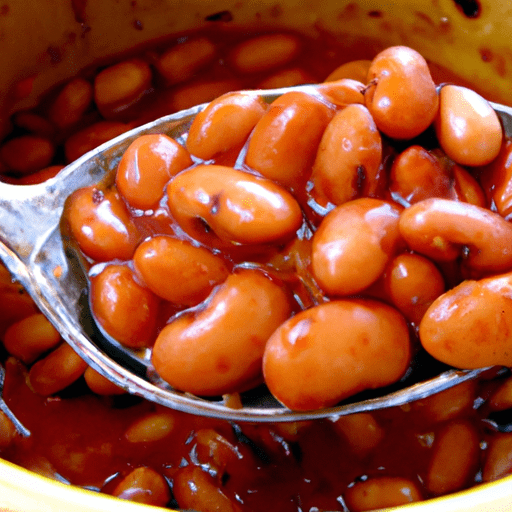The Unforgettable Pinto Beans: A Canned Marvel
Canned pinto beans are a versatile staple that never fails to satisfy. These humble legumes, packed with flavor and nutrition, offer an effortless way to elevate your cooking. Whether you prefer them as a standalone dish or as an ingredient in savory recipes, canned pinto beans are a time-saving and nutritious addition to any pantry.
Taste and Common Uses
Pinto beans are renowned for their creamy, earthy flavor and tender texture. When cooked and seasoned properly, they provide a delightful savory experience that is deeply comforting. These beans beautifully absorb the flavors of accompanying ingredients, such as spices, herbs, and aromatics, making them incredibly versatile.
Canned pinto beans are a convenient option for whipping up quick and delicious meals. They are the backbone of classic dishes like chili, refried beans, and bean soups. Adding them to stews, salads, burritos, and casseroles brings a hearty and satisfying element to your culinary creations.
Nutritional Powerhouse
Apart from their delicious taste, canned pinto beans offer numerous health benefits. They are an excellent source of plant-based protein, making them a fantastic alternative for vegetarians and vegans. A one-cup serving of pinto beans contains approximately 15 grams of protein, which aids in muscle growth and repair.
Rich in dietary fiber, pinto beans are celebrated for their ability to promote healthy digestion and balance blood sugar levels. Fiber also contributes to a feeling of fullness, making these legumes a perfect addition to balanced meals or if you’re watching your weight.
Furthermore, pinto beans are packed with vital nutrients. They are a significant source of iron, which helps transport oxygen through the body and prevents fatigue. Additionally, they offer generous amounts of folate, magnesium, and potassium, which are essential for maintaining overall health.
Interesting History and Facts
Pinto beans have a rich history that dates back thousands of years. Native to Central and South America, they were cultivated by Indigenous tribes long before the arrival of Europeans. Pinto beans became an integral part of Latin American and Southwestern cuisine, with traditional dishes like “frijoles charros” and “pinto bean pie” showcasing their cultural significance.
In the early 20th century, pinto beans gained popularity across the United States due to their affordability, versatility, and nutritional value during the Great Depression. They provided a vital source of sustenance for many American families during challenging times.
Today, canned pinto beans continue to be a pantry staple worldwide due to their convenience and ability to transform any meal into a wholesome culinary experience.
Conclusion
Canned pinto beans never cease to amaze with their rich taste, versatility, and nutritional benefits. These legumes have solidified their place as a beloved ingredient in countless recipes, from comforting stews to zesty burritos. Knowing that they date back centuries and have played a significant role in various cultures only adds to their allure.
Next time you’re perusing the aisles of your local grocery store, don’t overlook the unassuming canned pinto beans. Their possibilities are endless, and they promise to bring a delightful flavor and wholesome nutrition to your table.
Origin: Pinto beans (Phaseolus vulgaris) have been cultivated in the Americas for thousands of years. Native to Central and South America, they were first domesticated by indigenous peoples in what is now Mexico and Peru.
Common Uses: Canned pinto beans are widely used in various cuisines around the world, including Mexican, Caribbean, and Southwestern cuisine. They are a popular ingredient in dishes such as refried beans, chili, soups, stews, and salads.
Nutritional Benefits: Canned pinto beans are highly nutritious. They are an excellent source of dietary fiber, plant-based protein, vitamins, and minerals. They are particularly rich in folate, iron, magnesium, and potassium. Pinto beans are also naturally low in fat and cholesterol-free, making them a healthy addition to a balanced diet.
Unique Properties: Pinto beans have a distinct mottled appearance, with a light beige background and specks of reddish-brown color, giving them their name “pinto,” which means “painted” in Spanish. When cooked, their creamy texture and earthy flavor make them versatile in a wide range of recipes.
Historical Significance: Pinto beans were an important staple crop for the ancient Aztecs and Mayans and played a significant role in their cuisines. When Spanish conquistadors arrived in the Americas, they encountered pinto beans and introduced them to Europe, and eventually, they spread to other parts of the world. Today, pinto beans are widely cultivated and enjoyed globally.




Use the share button below if you liked it.
It makes me smile, when I see it.